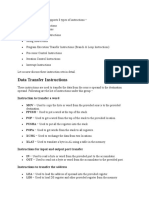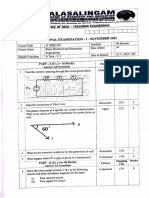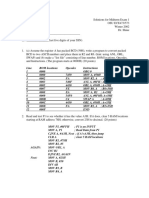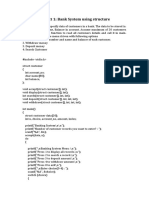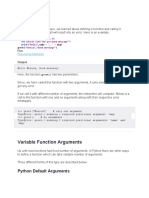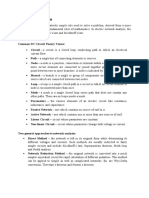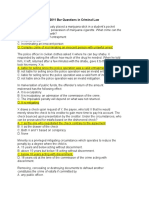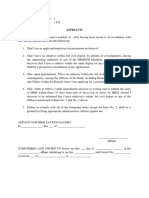0% found this document useful (0 votes)
530 views1 pageDescribe The Two General Roles of An Operating System, and Elaborate Why These Roles Are Important
The two general roles of an operating system are to provide an abstraction layer between hardware and software to reduce the burden on developers and allow applications to access common resources regardless of hardware, and to manage computer resources like the CPU, memory, and peripherals to ensure fair and efficient usage. An operating system handles resource allocation, provides a user interface, executes applications, and acts as an intermediary between the user and hardware.
Uploaded by
Boy Omar Garangan DatudaculaCopyright
© © All Rights Reserved
We take content rights seriously. If you suspect this is your content, claim it here.
Available Formats
Download as DOCX, PDF, TXT or read online on Scribd
0% found this document useful (0 votes)
530 views1 pageDescribe The Two General Roles of An Operating System, and Elaborate Why These Roles Are Important
The two general roles of an operating system are to provide an abstraction layer between hardware and software to reduce the burden on developers and allow applications to access common resources regardless of hardware, and to manage computer resources like the CPU, memory, and peripherals to ensure fair and efficient usage. An operating system handles resource allocation, provides a user interface, executes applications, and acts as an intermediary between the user and hardware.
Uploaded by
Boy Omar Garangan DatudaculaCopyright
© © All Rights Reserved
We take content rights seriously. If you suspect this is your content, claim it here.
Available Formats
Download as DOCX, PDF, TXT or read online on Scribd
/ 1

